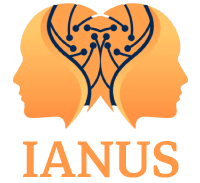For the IANUS project, the societal co-creation labs are an innovative initiative designed to delve into the complex interplay between science and society, specifically focusing on trust, communication, and perception dynamics. The core of this initiative is to explore a series of critical questions that have emerged at the intersection of scientific inquiry and societal needs. These include the desired changes at the institutional level, the nuances of (mis)trust in science -whether engaged with political and economic realms or remaining detached- the impact of gender on trust, the confidence of scientists in societal processes and democratic deliberation, the balance between assertiveness and humility in scientific claims, the role of emotions in science communication, the public’s misunderstanding of scientific skepticism, and the perceptions of mistrust within the scientific community itself.
IANUS partner Radboud University (RU) highlights that the key objective of these labs is to bring to the forefront the voices of ‘marginalized knowledge holders’ -those whose perspectives are often overlooked in scientific discourses and policy-making. This endeavor aims not just to include a wider spectrum of societal actors but to actively engage them in shaping the research agenda and outcomes. The methodology employed is both diverse and participatory, encompassing the organization and participation in various events that serve as platforms for dialogue, exchange, and co-creation.
Thus, the events organized by RU will include:
- House of Commons debates, designed to foster public input on science and society issues. Targeting a wide array of participants, from artists and designers to local policymakers and educators, these debates aim to stimulate rich, inclusive conversations.
- Potential publication on the methodologies employed within the co-creation labs, sharing insights and learnings with a broader academic and professional audience.
- Educational activities, focusing on enhancing science-in-society dialogues through engaged scholarship, activist science, and teaching. This involves connecting students with diverse groups to foster a deeper understanding of science’s societal implications.
- Project development, which integrates artistic research and design thinking at the art-science interface, highlighting the value of interdisciplinary approaches in exploring scientific themes.
The outcomes of the societal co-creation labs are expected to be multifaceted, contributing to a more nuanced understanding of the relationship between science and society. By documenting the processes and responses generated through these co-creative efforts, the initiative aims to offer valuable insights into how science can more effectively engage with societal challenges, foster trust, and enhance democratic deliberation. Ultimately, the societal co-creation labs endeavor to model a more inclusive and dialogic approach to scientific research and communication that recognizes the importance of diverse perspectives and the value of co-creation in addressing the complex issues facing our world today.
